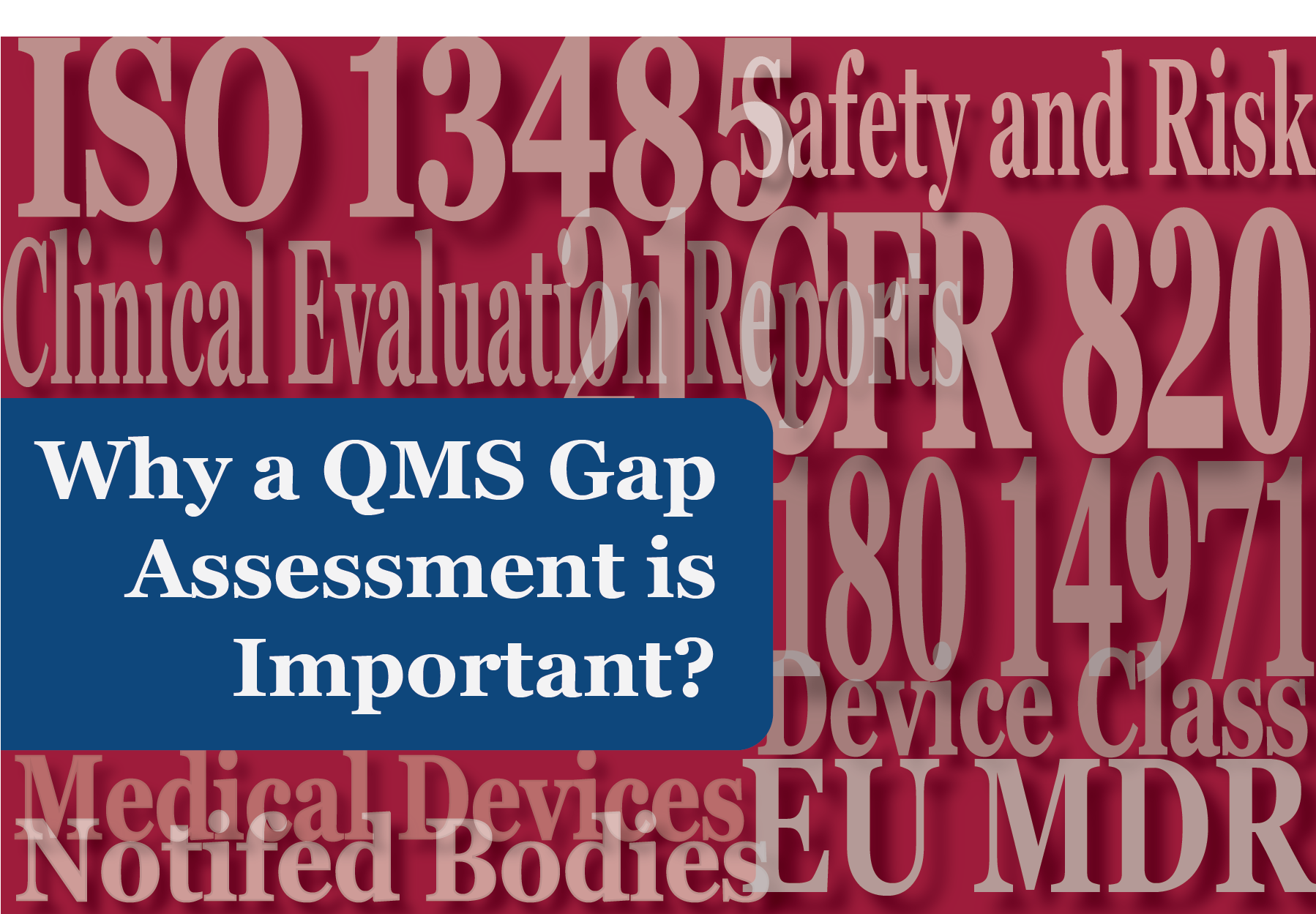As a medical device manufacturer, every company must establish a QMS in compliance with 21CFR 820 (if you sell in the US) or ISO 13485 [which is internationally recognized]. With this as a starting point, you might have the Quality Manual and the required procedures in place, but it is very important to keep checking for its continued compliance with the changing regulations.
A gap assessment is essential if you are considering selling your product in a new market. Companies that are currently ISO certified may think that they are satisfying all International QMS requirements; however, there are some country-specific requirements that need to be satisfied as well.
For instance, it is commonly misinterpreted that if the company is compliant with 21CFR820 and that since the FDA participates in the Medical Device Single Audit Program, the company should be able to pass an MDSAP audit. However, that is not the case. Your company needs to thoroughly assess the current QMS against the country-specific guidelines you wish to market in. This also applies to if your company is ISO 13485 certified. ISO 13485 is just one of the foundations of MDSAP but there are additional country-specific requirements that you need to comply with.
Some companies try and adopt the Internal Audit as a gap assessment tool; however, the goals and scope of an internal audit are different than that of a gap assessment and will not provide the same level of detailed outcome. A thorough gap assessment report is essential to get a complete understanding of all the missing or weak components of your QMS. A gap assessment will not only reduce the compliance risk but will also help save time and financial resources for your company in the long run.
EMMA International has the right expertise to conduct a thorough gap assessment of your system and provide you the correct approach for your path forward. Give us a call today to know how we can help you! Give us a call at 248-987-4497 or email us at info@emmainternational.com.






